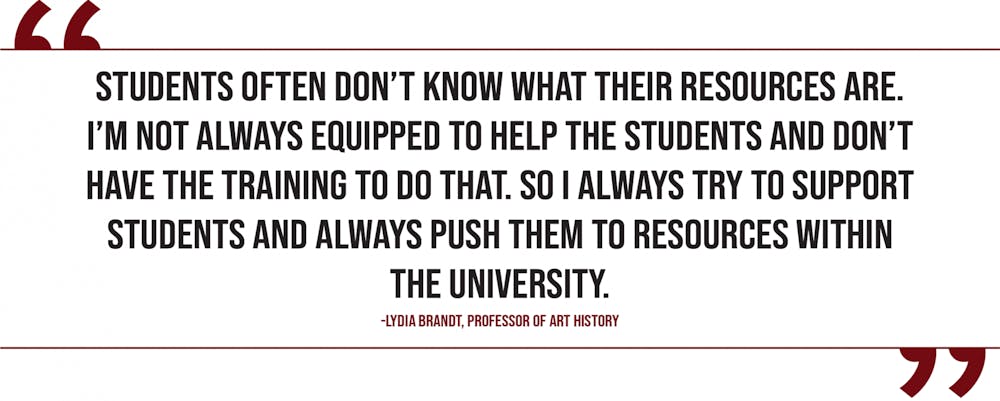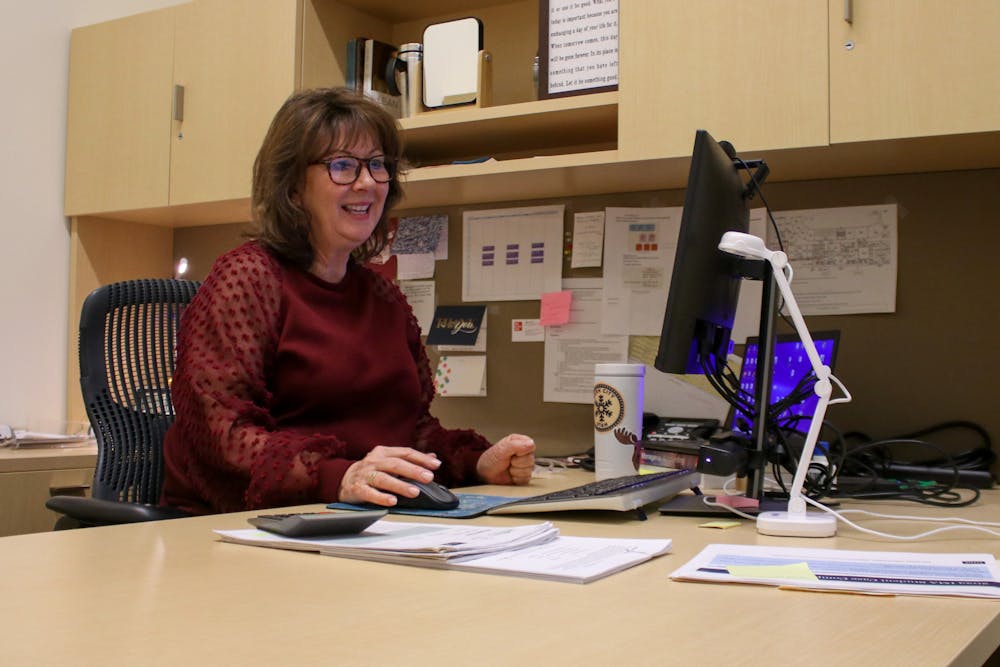The COVID-19 pandemic forced USC professors to adapt to online classes to an unprecedented degree. Since the university has shifted from entirely virtual classes during the height of the pandemic to more in-person instruction in the semesters since, professors have reflected on the benefits and disadvantages of online classes and whether the university properly supports its faculty while teaching online.
Some professors have continued to teach online since all classes at the university went virtual in March 2020. Others have returned exclusively to face-to-face teaching or have embraced a hybrid approach.
The university maintains policies for faculty teaching from home. Jeff Stensland, the university spokesperson, said over text that the university instructs each department to draft policies for faculty working from home and that these documents are approved by the state Human Resources department.
Lydia Brandt, a professor of art history, didn’t teach virtually before the pandemic. However, she’s made a switch to teaching hybrid after COVID-19 lockdowns for a couple of reasons.
“The students like it,” Brandt said. “I teach art history and architectural history, and teaching hybrid allows me to make videos that are much richer visually than lectures that I would give in person, so I think that content is better. It also frees up my class time when I meet with students face-to-face to do more field trips and work on activities and assignments in class.”
As a professor and researcher, her plate is full, Brandt said. She said she also serves as an informal guidance counselor for her students on top of her regular duties.
“Students often don’t know what their resources are,” she said. “I’m not always equipped to help the students and don’t have the training to do that. So I always try to support students and always push them to resources within the university.”

Miriam Shealy teaches virtually since COVID-19 to deliver her courses in an “easier fashion.” Shealy, a professor in accounting, said she has received lots of support from the university.
Shealy said professors received one-on-one counseling during virtual classes at the height of COVID-19.
"(The university does) give me the flexibility to teach from home," Shealy said.
Gretchen Woertendyke, an English professor, also says the university's support of her online teaching has given her more flexibility. When Woertendyke’s mother passed in September 2020, the university gave her a bereavement leave while she was already teaching virtually.
“(They) extended some support and help for me to teach hybridly while I was still going through a lot of trauma,” Woertendyke said. “So in that way, I think the university is very supportive of faculties' mental health.”
However, Woertendyke did complain of a lack of resources offered to professors, like the university’s WiFi, which she said can be unreliable. During the pandemic, she had to pay for her Zoom account she used for teaching, according to Woertendyke.
Woertendyke no longer teaches virtually and said she had a more difficult time transitioning to virtual learning during the COVID-19 pandemic.
“WiFi is pretty spotty on campus, so we can’t really rely on students being able to attend a virtual classroom,” Woertendyke said. “It became clear that that was just, like, unfair, for students. So I went back to full face time as soon as I could.”
Robert Lipe is the faculty director of the professional MBA program at Darla Moore School of Business. He handles issues with virtual teaching as a director but also as a professor.
He has taught virtual classes in the professional MBA program since 2012. He said many of his faculty members stepped up during the pandemic to guide teachers who were new to online teaching.
Lipe receives direct support from the Darla Moore School of Business and aims to support his staff with online teaching as much as possible. He said it requires a “different skill set” to teach virtually.
“I can just speak to the kind of support that we try to give them,” Lipe said. “We try to do our best and make sure that they’re ready to teach in this multiple modality world.”

